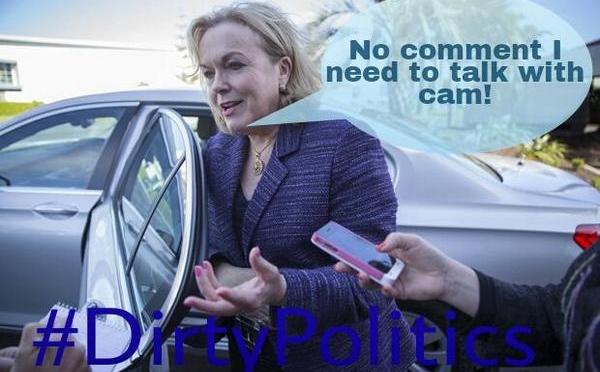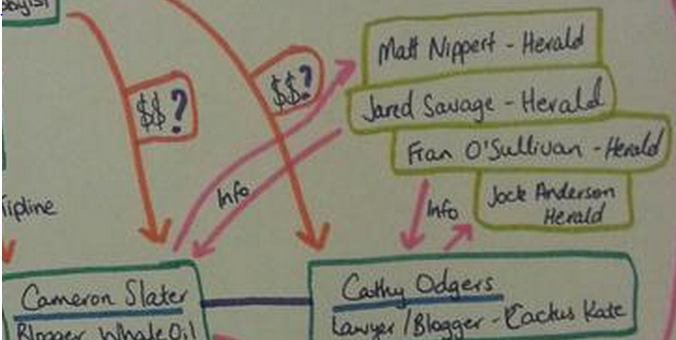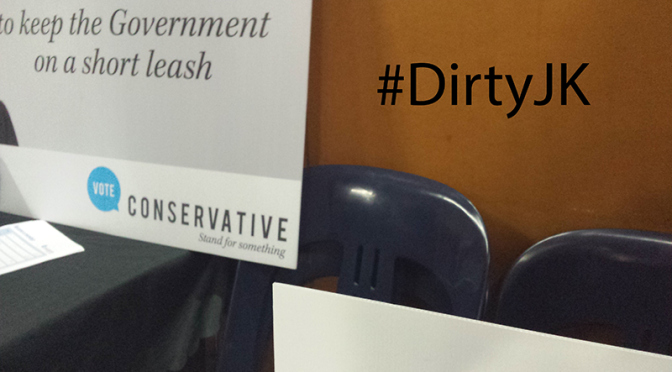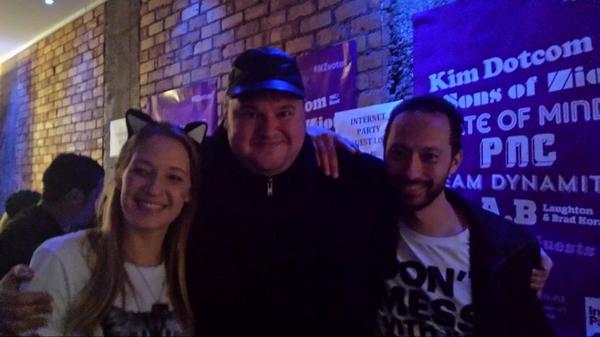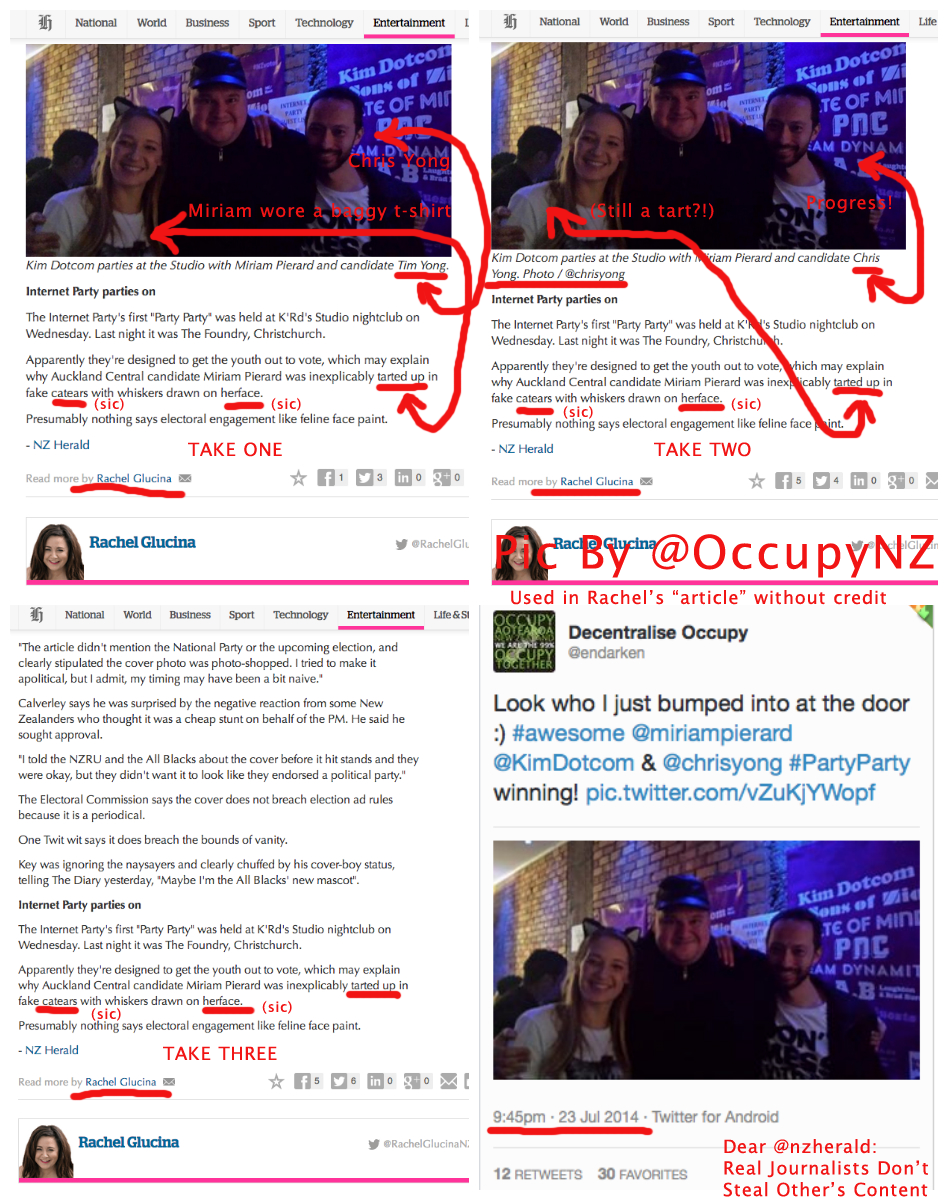Mainstream Kiwi journalism in the wake of Dotcom, Assange, Snowden & Greenwald’s pre-election ‘Moment of Truth‘ event has fallen squarely along ideological lines.
The media have yet to give any serious consideration to the possibility of any new political paradigm outside of the left-right sphere in which they remain firmly entrenched. The results are predictable and must be challenged.
Both poles – left and right – of the Kiwi blogosphere fall short of the truth. This shows a clear need for a new media vanguard and the rest of this post shows that if this doesn’t occur within the mainstream; Joe and Jane Kiwi are in the comments sections en masse, stepping up to the plate.
It is telling that the comments on Kiwi blogs can make better reading than the articles themselves. The greater the level of crowd participation, the more valuable the experience for the reader.
While both the following case studies have large readerships by Kiwi standards, the examples stand in stark contrast.
The Right Wing Narrative: “The Rise And Fall Of Kim Dotcom”
(David Farrar’s KiwiBlog)
David Farrar is a major NZ blogger recently implicated in a series of unsavoury undertakings outlined in Nicky Hager’s best-selling book “Dirty Politics“. (Curiously David’s personal Wikipedia page appears to be cleansed of any mention of his alleged involvement, despite him being referenced by name on the Dirty Politics Wikipedia page)
Dirty Politics detailed a prolonged and sustained smear campaign against Kim Dotcom by right-wing political forces including Farrar, evidenced by Farrar’s own archives, which he proudly links into the first sentence of his latest anti-Dotcom episode.
The article is a classic example of lack of context colouring outcomes. From the very first sentence broad statements are made back-to-back without any rational or environmental explanation for each. The statements are run together, creating a cumulative effect to win over the reader.
“A couple of years ago Kim Dotcom was a fairly popular person in New Zealand” opens Farrar.
Farrar conveniently fails to mention that this is because the mainstream media built Dotcom up to be the greatest thing since sliced bread. Predominantly because his monied and flamboyant image fit perfectly with their cause celebre` consumption of valuable “news” time that is more often “tabloid” time.
The media by-in-large (especially television) do not want to spend their precious six minutes of allocated daily news time (sans sports, weather, stockmarkets and advertising) covering war, famine, the universal aspiration of world peace or meaningfully advancing society in general, other than in a consumeristic fashion.
Real investigative journalism is expensive and difficult and can present conflicts of interest for program funders. So of course the media lapped up Kim Dotcom’s cars, super yachts, fireworks. It fit perfectly with the women’s magazine-style news agenda.
“How did [Dotcom] go from being reasonably popular, to arguably the most hated person in New Zealand politics?” Farrar asks.
By exactly the same route. Just as with countless celebrities before him, the media profited from raising him up, then profited from dropping him on his ass, and thanks to #DirtyPolitics we know not only who was pulling the strings and what the methodologies were, but the public has now been empowered to recognise the symptoms each time the same tactics are played out again.
The common thread that runs through it is the complete and utter ineptitude of the mainstream media – not only due to political corruption and cronyism but their inability to honour their duty of care to the public, which has led to an ever-increasing number of ordinary citizens rising up to perform their investigative duties instead, bringing to light the real issues that the mainstream so often suppresses.
“National MPs and candidates I spoke to have all said that the most common topic of conversation in the last week was Kim Dotcom” says Farrar. Again he is correct but fails to mention that those people in doing so, are purely regurgitating the anti-Dotcom narratives slung about by the mainstream media on a daily basis.
Rather than addressing the content of Snowden’s revelations, or analysing the importance of the disclosures, the media declared “The Moment of Truth” event, with its sell-out crowd, standing ovations and hundreds of thousands of livestream viewers “a fizzer”, instead continuing their (in some cases spoon-fed) Dirty Politics campaign of anti-Dotcom attacks. Most notable, the appalling ‘Moment of Truth’ press conference, where they failed to ask Pulitzer Prize winner Glenn Greenwald questions relevant to his reporting, instead rudely lambasting him about Kim Dotcom (who finally got fed up and famously dished it back).
But this was closely followed by a near week-long election lead-up of bad mainstream press and radio talk-back host narratives eerily similar to Farrar’s next assertion; that “the public would come up to them unsolicited and speak of how badly they want him not just out of NZ politics, but out of New Zealand.”
Now who was it claiming Kim Dotcom should get out of NZ politics, and out of New Zealand? The same media who now claim that the public say they want Kim Dotcom out of politics and out of New Zealand.
To his credit, Farrar goes on to dedicate several paragraphs to empathising with Dotcom over the absurd nature of the FBI raid and the then illegal conduct of the #GCSB (which has now presumably been retroactively legalised by the passage of the GCSB bill).
Logic ends there however, as Farrar begins to list his perception of errors in judgment made by Dotcom.
“If Dotcom had not invented a conspiracy theory that Barack Obama and Joe Biden got John Key to let Dotcom into NZ, so he could be arrested and extradited, he would have stayed relatively popular” Farrar states.
This is a remarkable claim. Nowhere in the public narrative about Dotcom has this been evident. People have been led to believe many things about Kim Dotcom, but never once have we overheard someone say “yeah if he hadn’t implicated Joe Biden and Barack Obama I’d think he was great”.
Who would say such a thing? In whose world is that the number one perceived error in Dotcom’s judgment? Farrar’s apparently.
“New Zealanders are quite egalitarian, and don’t like a guy who flies everywhere in a helicopter leaving small NZ businesses out of pocket for tens of thousands” says Farrar.
Yet Dotcom’s helicopter was only a news issue in the context of John Banks having ostensibly forgotten he was ever in it. And who was it that really left “small NZ businesses” out of pocket when all of Dotcom’s assets were frozen on the spot? Was it not the actions of the US & NZ governments in freezing those assets that led to temporary solvency issues? Temporary because instead of going bankrupt and sulking, Dotcom threw himself back into the business world with gusto, innovating and earning his way into a position to finance the Internet Party (among other ventures)?
Farrar quickly follows on from claiming Dotcom didn’t pay people to stating “If he had only put $500,000 or $1,000,000 into his pet party, there may not have been such a reaction. But $4.5 million looked obscene”.
Employing a massive staff of mostly young Kiwi political newcomers , Dotcom’s Internet Party enterprise was in itself a job creator, and while its funding was significant by New Zealand standards, it was a tiny drop in the bucket when compared to the net worth, sway and fundraising abilities of National Party members and associates.
Back on the topic of what the public thinks – this is one thing that has been repeatedly pointed out by usually politically-unengaged members of the public – that National’s “Dotcom spent too much money!” argument is hypocritical as that standard should logically be applied across the full political spectrum if at all.
Farrar moves on to attacking the Internet Mana alliance. “Dotcom and Mana were seen to have almost no policy commonality” he writes. Funnily enough the Loomio-powered policy incubator was one of the most-discussed things in alternative media and the least discussed in the mainstream.
Policy formation for a brand new party was always going to be an ongoing collaborative process, but with mainstream media demanding fixed narratives and soundbytes rather than reporting on the revolutionary technological ideas already being employed by Internet Mana, it was too often buried.
Unless it related to an issue that could be sensationalised, such as cannabis reform policy, there was little earnest attention by the mainstream as to the unique party structure, platforms and crowd-sourced innovations.
Internet Mana having an executive board became a source of ridicule by people who themselves have and sit on executive boards. As did their daring to have a female leader who knew what side she was on in ’81.
The Left Wing Narrative – “OnPoint – Sunlight Resistance”
(Keith Ng in PublicAddress)
With 402 comments on his article and real investigative journalism credits under his belt, Keith definitely wins the public response award.
Although it contains many strong points, the article completely misses the target when referring to the part played by mainstream media.
Keith’s conciliatory, gently chiding and in some places very generous approach to the media was no doubt intended as a kind of bridge… a pacifying voice, almost an olive branch.
“Journalists haven’t been lazy this election, nor have they been biased” Keith writes.
Unfortunately, Dirty Politics revealed exactly how lazy journalists have been. It is a well known fact that the press gallery all chase after the same story almost uniformly, as if they are incapable of generating their own stories and leads.
It is also well known that they repeat pre-fab and manufactured narratives rather than creating narratives in service of the public good.
In the wake of the election it is even more apparent. If you asked yourself each morning, “What would WhaleOil like the media to talk about today?” it would surely be the exact and constant debasing of Labour that is played out in the media on a daily basis.
The reality is, the Dirty Politics scandal didn’t break into the international media because of the efforts of mainstream media. It broke into the international media as a result of massive and sustained public outcry about it, and the social media cacophony that ensued.
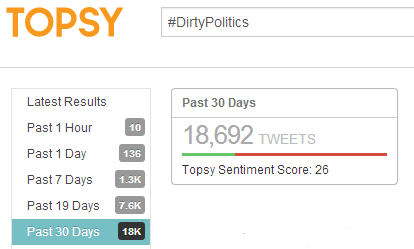
Once Dirty Politics finally did hit the international press they did a vastly better job of reporting on it in a neutral fashion than the NZ media did. There has even been follow-up!
Just as with the Moment of Truth coverage – where independent and international media discussed the actual issues while the mainstream NZ media largely whitewashed them, instead focusing on tabloid angles – the post-election NZ media sphere has been consumed by soap opera-esque daily helpings of anti-Labour tabloid junk.
“They hit Dirty Politics hard for weeks and they’re pretty indignant at people heaping scorn upon them” says Keith of the mainstream media. But the scale of the allegations in the book require more than just discussion, they require reform of both our national politics and our national media, yet there is no indication that this reform is occurring, or is likely to.
After more than half a dozen major journalists were implicated in the scandal, the media closed ranks and went straight back to business as usual, with the victims in that equation being editorial truth and any hope the public had for progress.
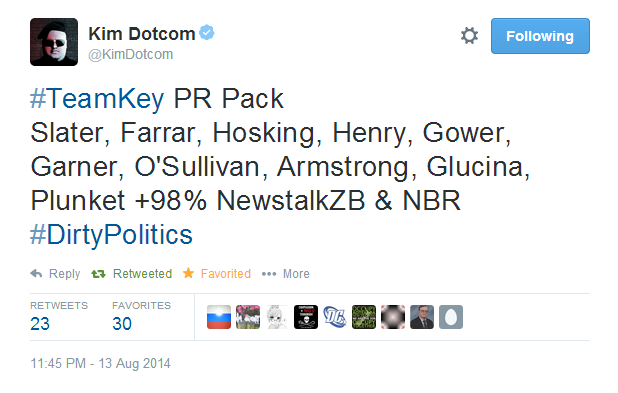
Indeed the media openly decry Dirty Politics as “business as usual” and brag of their own advanced knowledge of it as if it increases the prestige of their privileged as “insiders” rather than reflects on their own failure to inform the public of what has really been going on within our “democracy”.
Keith’s kind framing of the issues soon turns into some quite frank statements that eloquently describe the failures of the media.
“I feel for you, guys, but you need to look at this from the outside. “Sunlight is the best disinfectant” is supposed to be a description of your job, your role in the democratic process. And you have failed. It might not be your fault, but nonetheless, you have failed.”
The silver lining in all this is that the number of public responses to Ng’s post is 500% higher than that of Farrar’s, with over 400 comments on the PublicAddress post versus 80 on Kiwiblog.
Perhaps this is due to differences in the curation practices of the comments section of each, or in the types and motivations of people comprising the readership of each blog.
Whatever the reason, the PublicAddress comments section contains many gems worthy of further consideration.
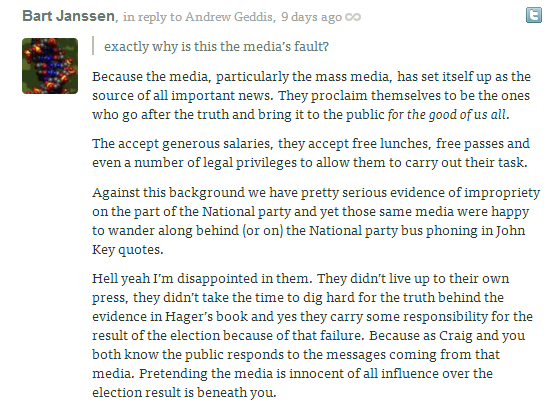
Couldn’t put it any better ourselves. And this;

Several notable stalwarts also weighed into the fray, including Scoop’s Alastair Thompson and PublicAddress editor Russell Brown’s comment, pictured below.
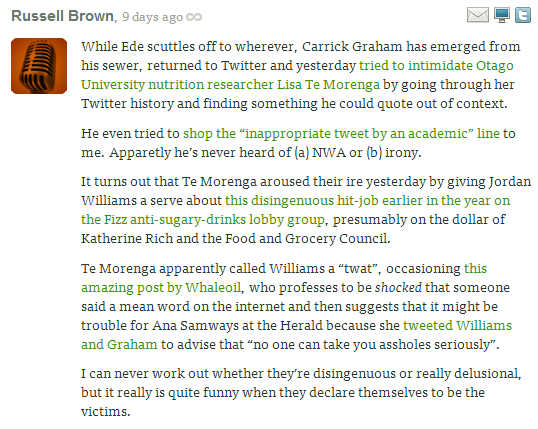 Russell’s two cents is fascinating not only because it proves that Dirty Politics is continuing unabated, but also because it reveals Farrar’s “shopping” of cabal-serving narratives to other mainstream journalists. Despite the claims in this post by Pundit.co.nz contributor (and frequent commenter on Ng’s article) Andrew Geddis, that Farrar says he has “never have taken any form of money or kind for blog posts, and disclose even the mist (sic) minor gifts.”
Russell’s two cents is fascinating not only because it proves that Dirty Politics is continuing unabated, but also because it reveals Farrar’s “shopping” of cabal-serving narratives to other mainstream journalists. Despite the claims in this post by Pundit.co.nz contributor (and frequent commenter on Ng’s article) Andrew Geddis, that Farrar says he has “never have taken any form of money or kind for blog posts, and disclose even the mist (sic) minor gifts.”
This is clearly meant to obfuscate the issue of Farrar’s motivations, as he and his company have openly admitted their National Party funding and Prime Minister John Key himself recently disclosed that he talked to Farrar on a daily basis.
Whether he is specifically paid for blog posts or produces them as a value-add to the numerous other (paid) services he provided to the right of the New Zealand political sphere is actually irrelevant. Such claim of non-payment would only be relevant were there no other political funds being simultaneously received by Farrar – which he himself admits is not the case.
The Fall-out Continues
Legendary Kiwi social commentator Sacha Dylan brilliantly captures the ongoing tussle between Kiwis and the mainstream media in this fascinating post – “Reporting in the wake of Dirty Politics“.
As his article demonstrates, corporate media are now seemingly denouncing any critique of their practices as “abuse”, without any serious consideration for the questions that are now being asked of them regarding the way they gather and report on their “news”.
So we have the right-wing narrative that Kim Dotcom is bad, bad, bad.
We have the left-wing narrative that the media didn’t/don’t do their job properly.
And we have the corporate media narrative that people are just being mean to them. Rather than self-reflection, they instead appear to blame… Twitter.
Twitter has an amazing effect of democratisation of voice and many New Zealand mainstream journalists seem uncomfortable with its ability to expose them to opinions of members of the public that previously, the journalists’ privileged societal positions usually insulated them from.
The transition from living in a world of people who mostly agree with their positions to arriving in one where people mostly disagree with them must be painful at best.
Big-name mainstream journalists like Katie Bradford, Andrea Vance and Patrick Gower have all tweeted (ironically) expressions of distaste for the NZ Twittersphere.
While there is no lack of genuine trolls on Twitter, the level playing field created can allow independent media to achieve and even surpass the reach of the corporates. Indy sites staffed by all-volunteer contributors, can achieve shares into the thousands purely via word-of-mouth on social media, while paid, promoted mainstream efforts such as this routinely fetch 50-100.
The balance of viewer-ship, distribution of media platforms and identity of news providers are all changing – headed in a direction that runs counter to that of the established, esteemed and monied status quo.
Indeed it still seems yet to have dawned upon these journalists that the surge in not-for-profit independent media has occurred precisely because of the underwhelming performance of that status quo and that so long as they continue burying their heads in the sand and/or overtly employing diversionary tactics when speaking to issues of national importance, independent media will continue to pick up their slack.
That unpaid members of the public risk subjecting themselves to retribution from the Dirty Politics cabal in order to share the truth, where mainstream capitulate to (and thus empower) the cabal for their own perceived self-preservation, is the ultimate shame upon the convention of mainstream journalism in New Zealand. Yet one that appears to have not yet been fully grasped by them.
While the media closes ranks and protects (and/or colludes with) each other over their own implications in Dirty Politics practices, they are wronging the countless members of their own profession who have been targeted by the cabal to date.
For Nicky Hager exposed in his book that many journalists had been targeted by the cabal – specifically stating that their employment was subverted and attacked, their livelihoods and their reputations – yet who other than Hager will speak for them? If their own colleagues will not?
Once again the victims are shunned while the perpetrators are empowered to continue their immoral campaigns, undermining both common decency and our democracy.
A New Vanguard
Just at what seems to be the moment of supreme victory for the Dirty Politics cabal, drunk on their own success and infallibility, their insular nature prevents them from seeing what is really going on in the wider industry and how quickly it is spiralling beyond their control.
For while they continue torturing the same old targets they’ve hounded and manipulated for years, independent media is growing at a rapid pace.
Where there was once one livestream – there are now livestreamers everywhere.
Where there were a few lone voices in the blogosphere, there is now dozens if not hundreds of Kiwi self-publishers providing conscientious media analysis and a counter narrative to that of the mainstream.
With every private citizen attacked by the cabal – three, six, twelve more rise in their place.
A combination of the snowballing of what is globally known as ‘The Awakening’ and the Butterfly Effect of what Julian Assange once called (speaking to Forbes about Wikileaks) “the canary in the coalmine”, along with a good healthy dose of universal karma, are ensuring that the growth of both paid and unpaid independent media continues, even as the contraction of the mainstream media, with its endless budget cuts and departmental lay-offs, is exacerbated with every passing fiscal year.
The days of media outlets being able to so easily mislead their readers are numbered. When compared side-by-side with truth, lies become instantly recognisable. Readers are less and less inclined to be talked down to by journalists, or to settle for what was once the stereotypical 1-picture + 3-4 paragraph splice-of-life type output of 90% of Kiwi journalists.
The public is now more willing to do their own research and more willing to publish the truth themselves if they can’t find it readily available elsewhere.
More willing to demand high quality content and more willing to produce it themselves, or support others who do.
This is creating a new media vanguard that the state targeting of individuals will not suppress.
For as they say – you cannot kill an idea.
The only hope of the mainstream media to not ultimately make itself defunct is for it to embrace public involvement in media, rather than to blackout or ridicule it.
Not by committing Spin Sins but by openly engaging with the public on ways to resolve the issues that are being raised. To break down the walls, break down the barriers, and allow the diversity of all sides to be represented.
The media must no longer see the new vanguard as a threat, for it would never have existed had there not been a chronic societal need.
They must see journalism as a public service, part of our critical infrastructure, and be willing to make personal sacrifices to act to preserve the integrity of it.
In doing so they will not only meet their obligations to the public. By gaining the courage to stand up to their bullies, they will cease to be viable targets or tools of Dirty Politics, and will emancipate themselves.
[This post is now finished. Thank you for watching, reading and sharing this important work. The amazing artwork at the header of this post was donated by Occupy Auckland media co-ordinator/livestreamer @Redstar309z]
Spin Sins Committed:
Victim Blaming
Omission
Misrepresentation
Written by Suzie Dawson
Twitter: @Suzi3D
Official Website: Suzi3d.com
Journalists who write truth pay a high price to do so. If you respect and value this work, please consider supporting Suzie’s efforts via credit card or Bitcoin donation at this link. Thank you!
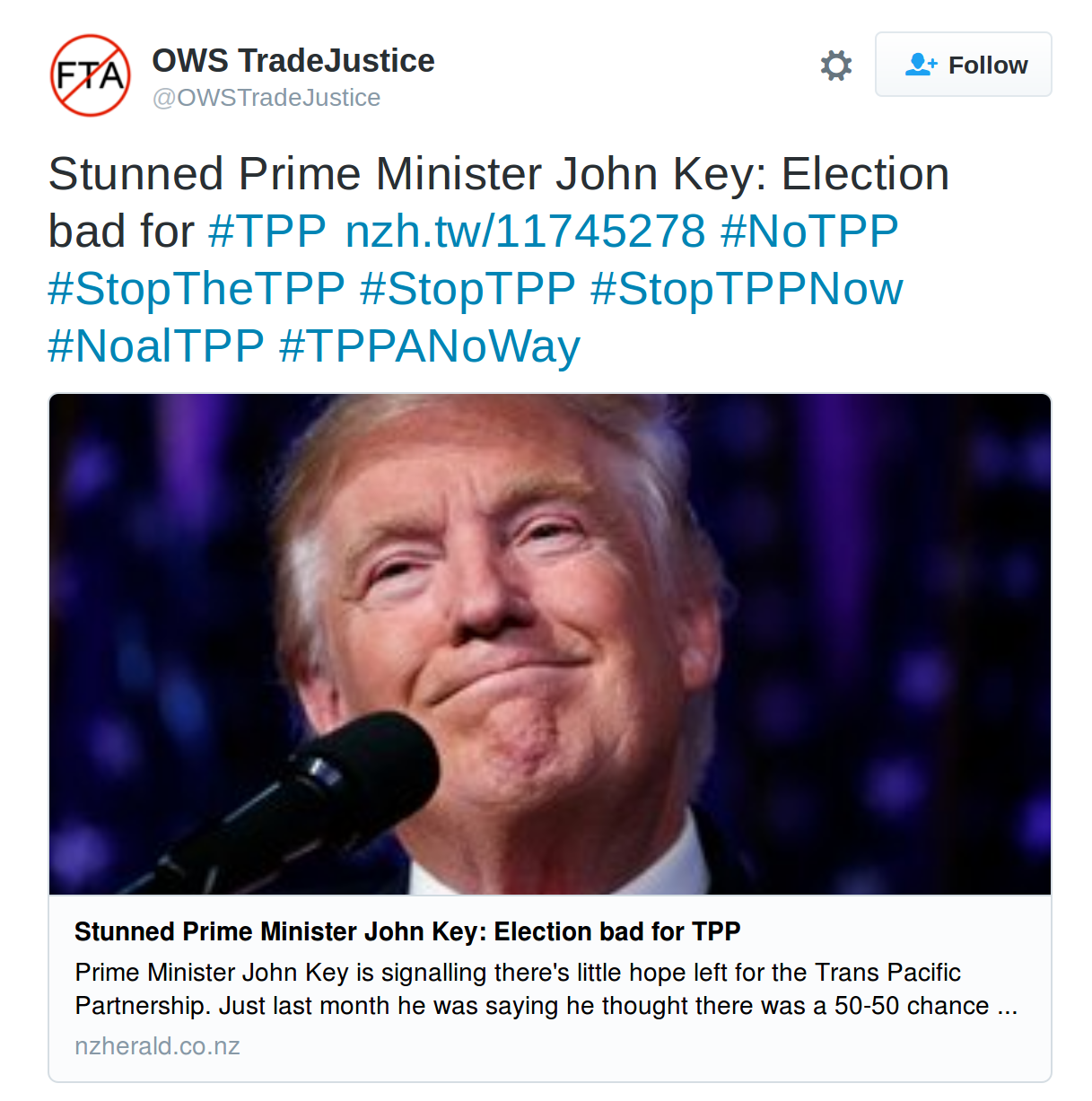
 John Key donated millions of public dollars to the Clinton Foundation, arguably the worst investment of all time.
John Key donated millions of public dollars to the Clinton Foundation, arguably the worst investment of all time.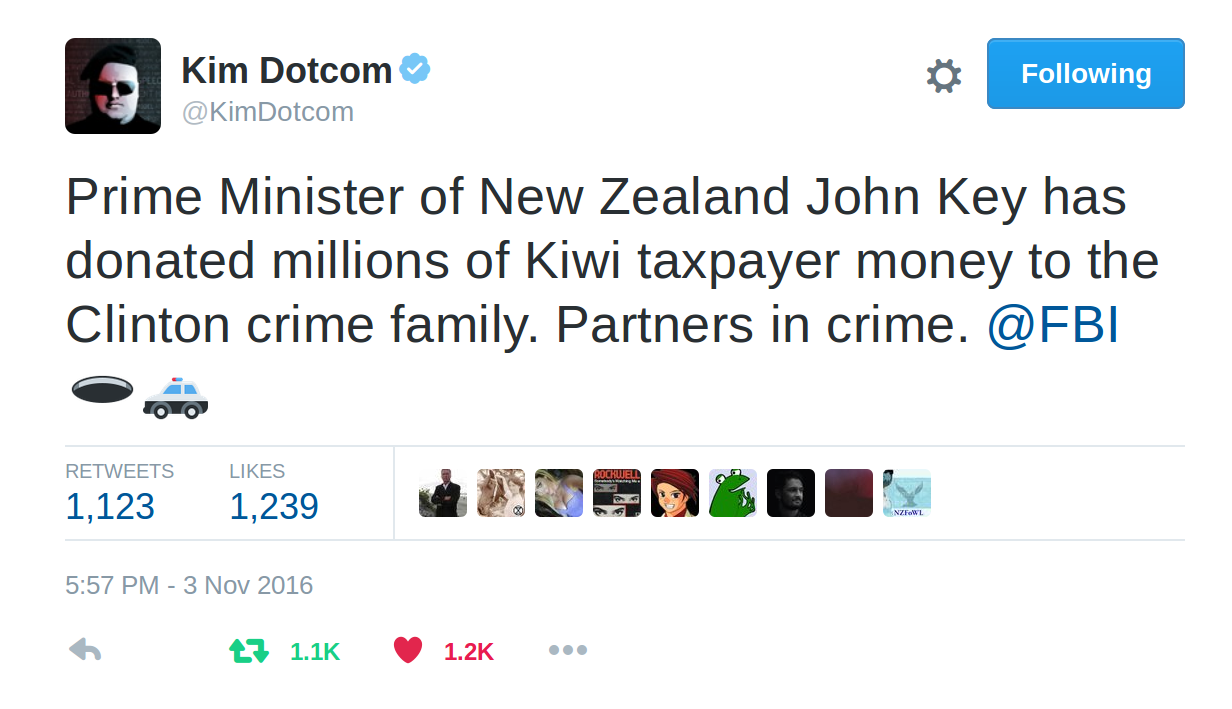
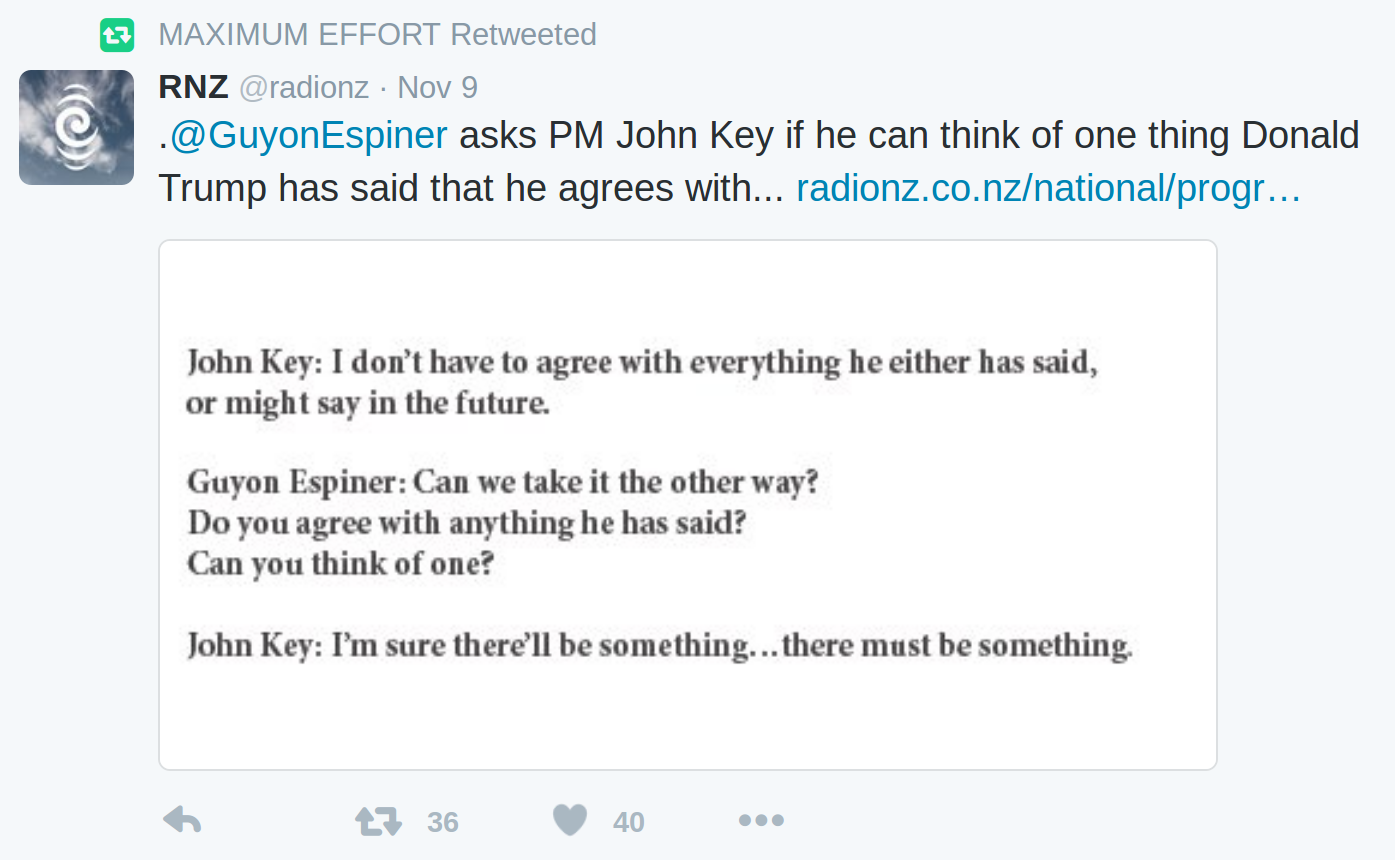
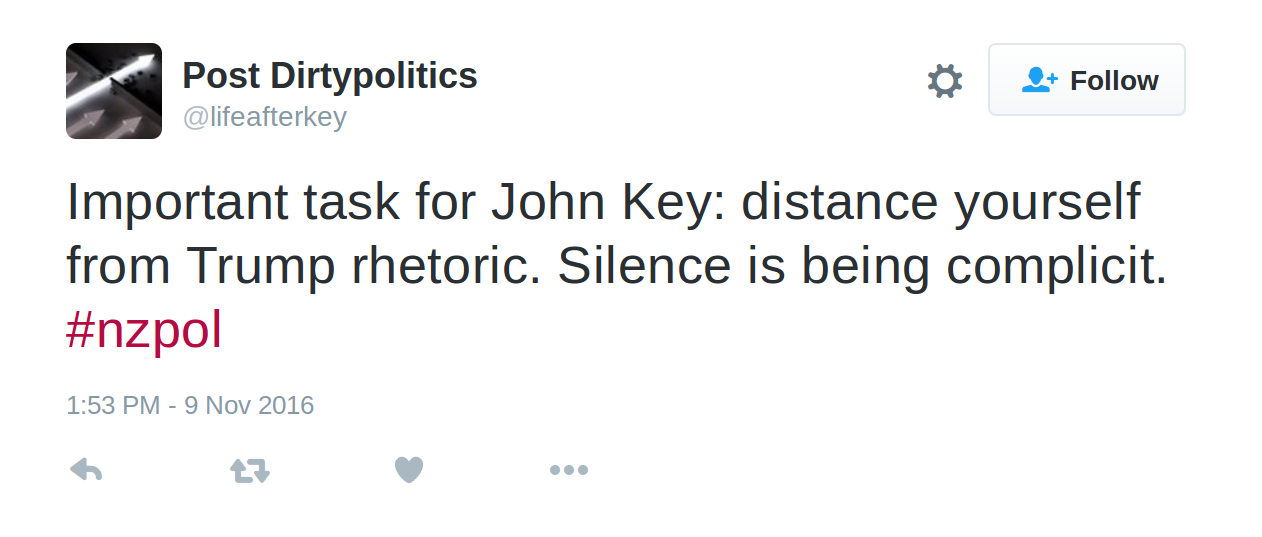
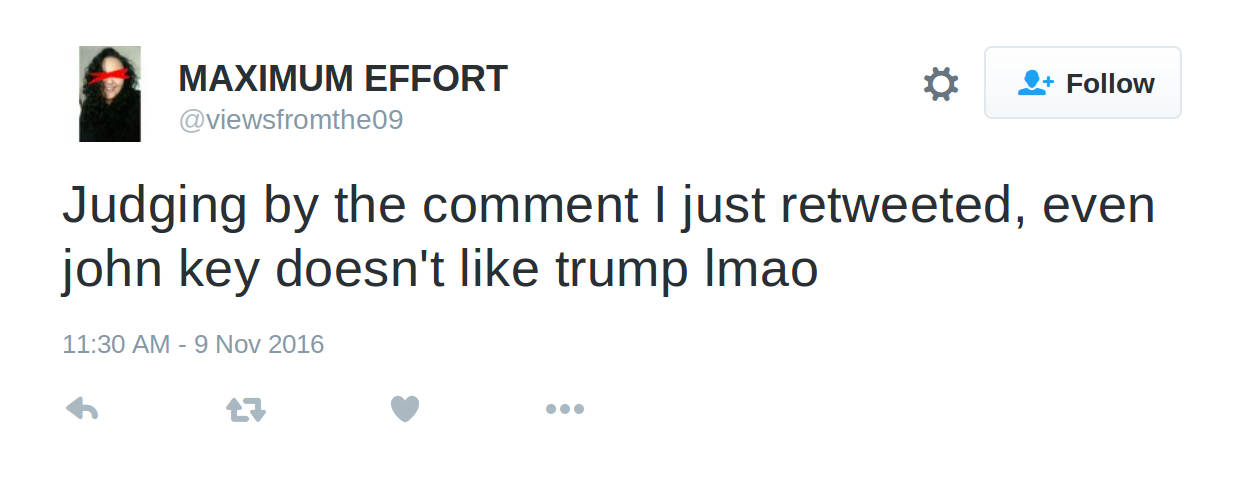 John Key is no stranger to scandal, and prone to telling porkies (over 400 of them to date) so this is all probably no big deal to him.
John Key is no stranger to scandal, and prone to telling porkies (over 400 of them to date) so this is all probably no big deal to him.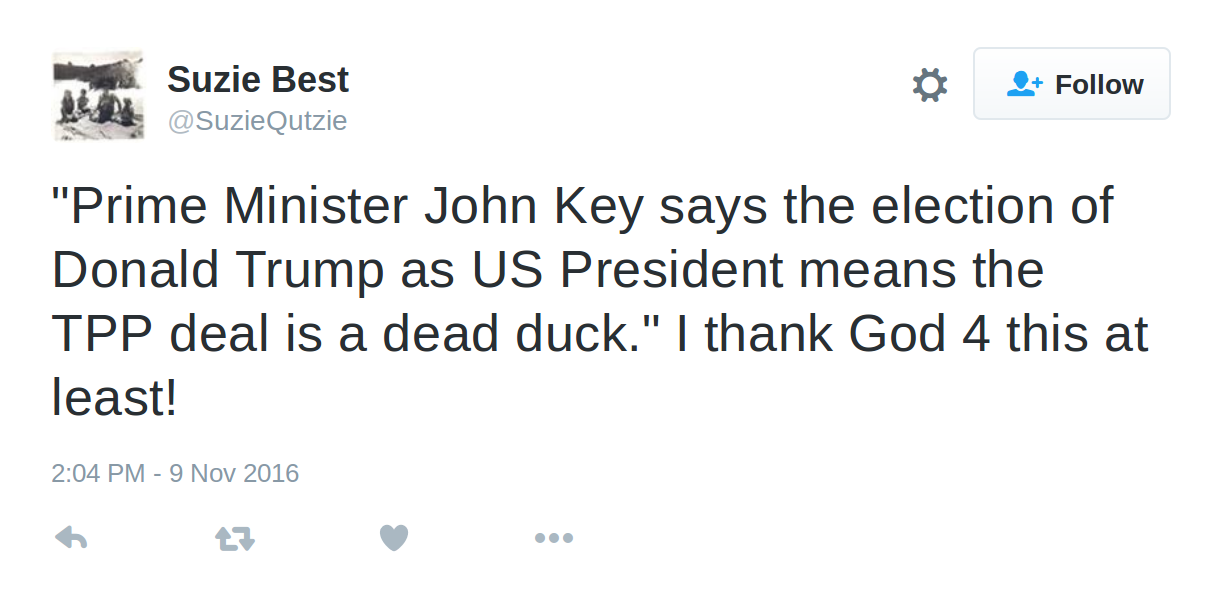
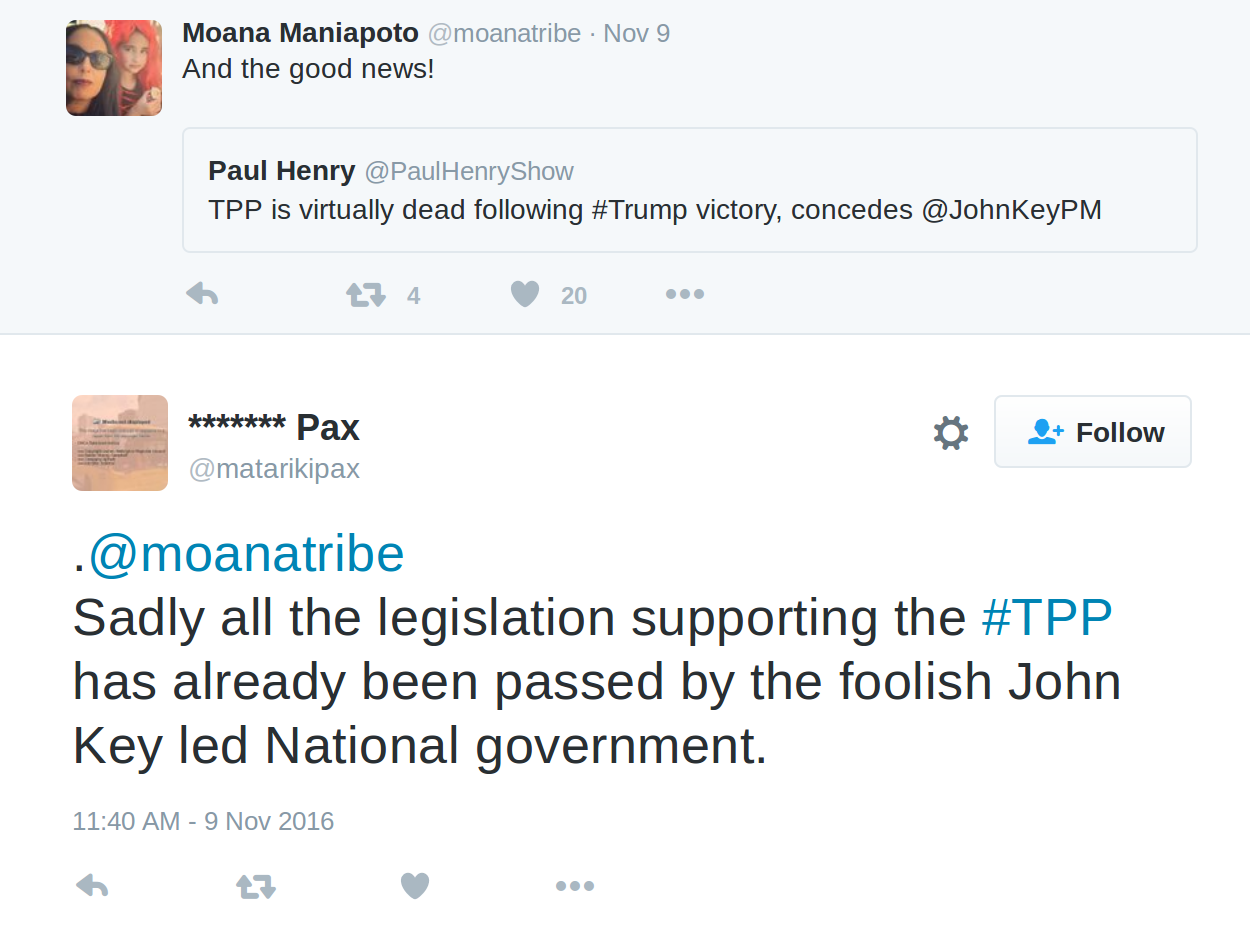

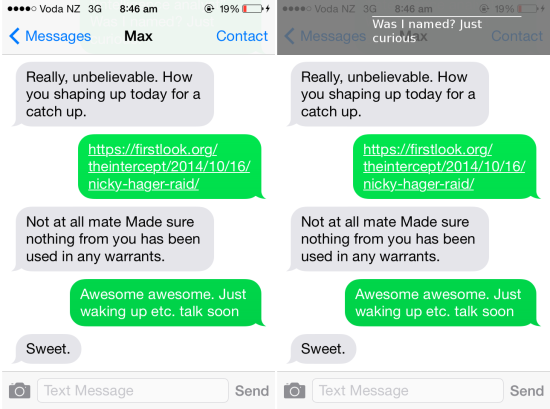
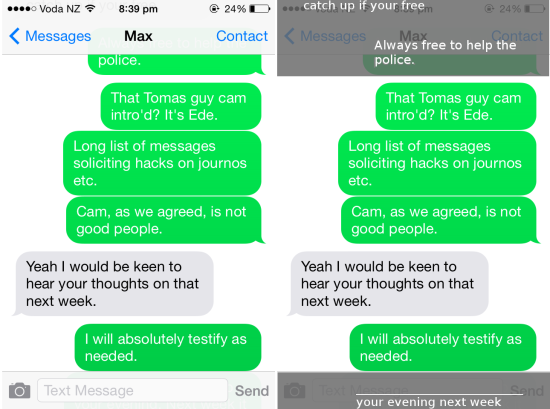
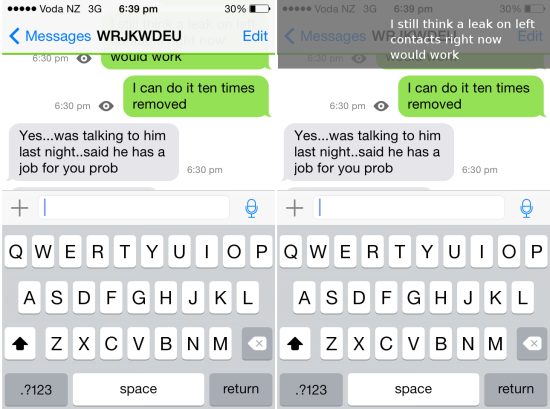
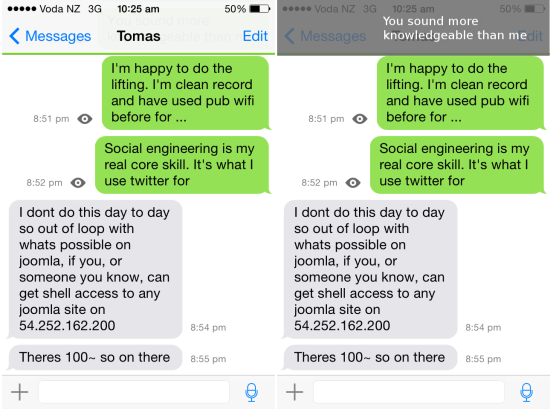

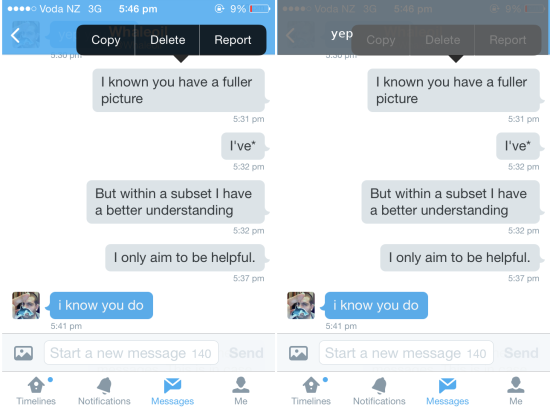
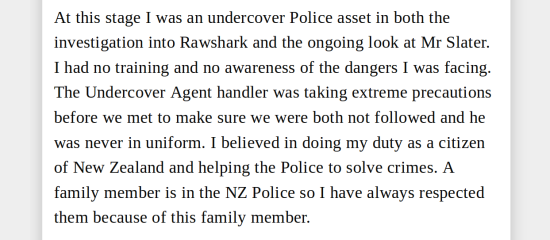
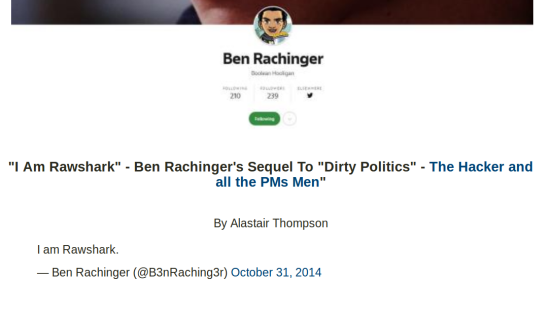


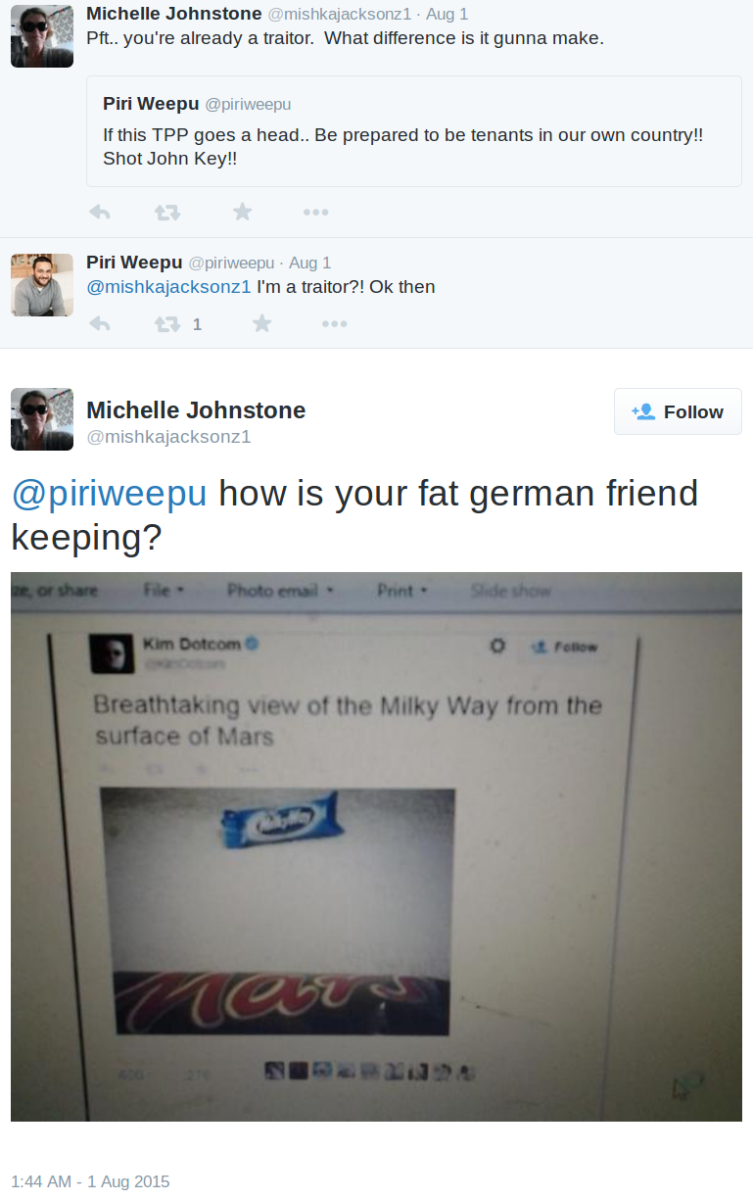
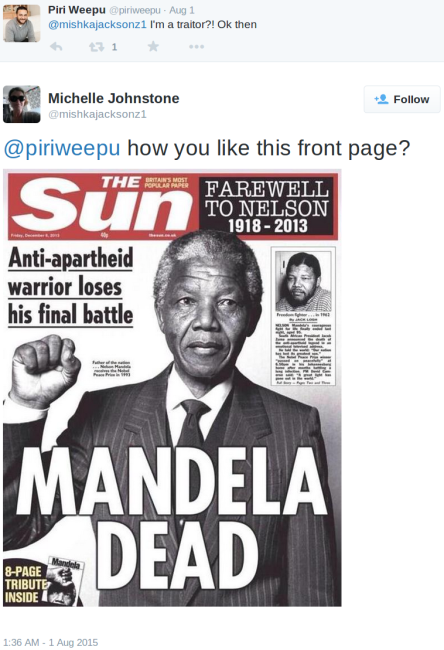
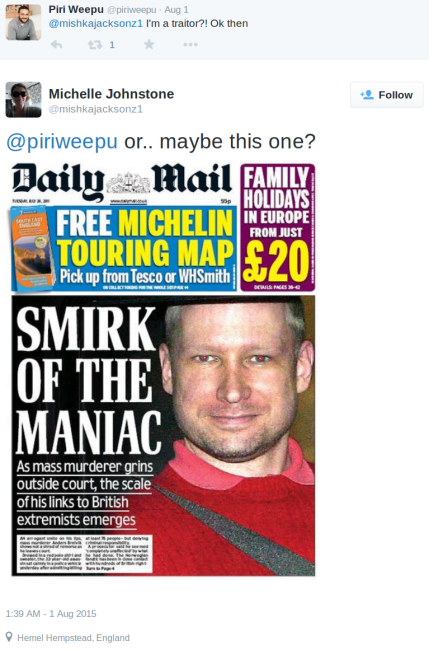
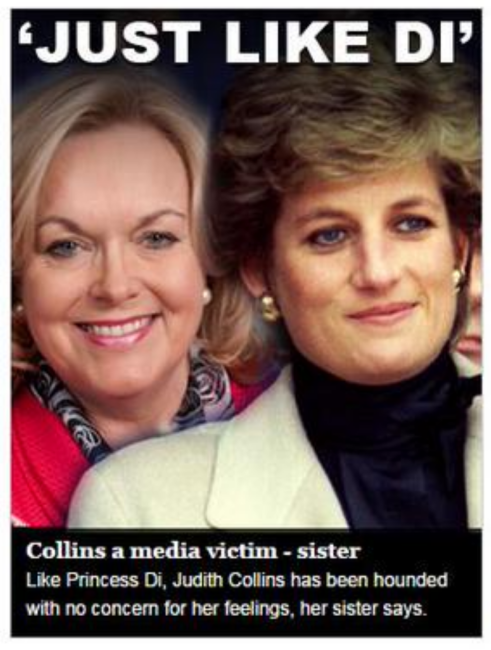 The above is the trademark behavior of a state-sponsored
The above is the trademark behavior of a state-sponsored 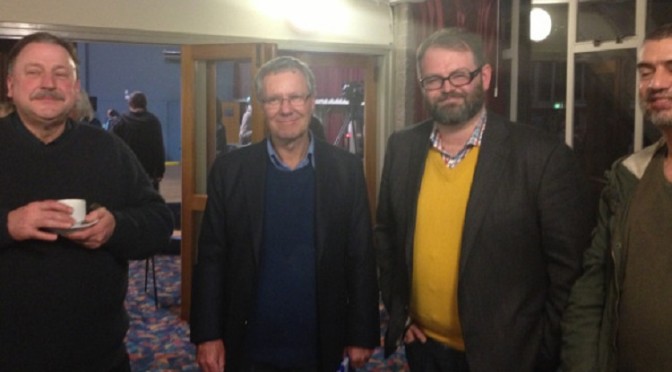
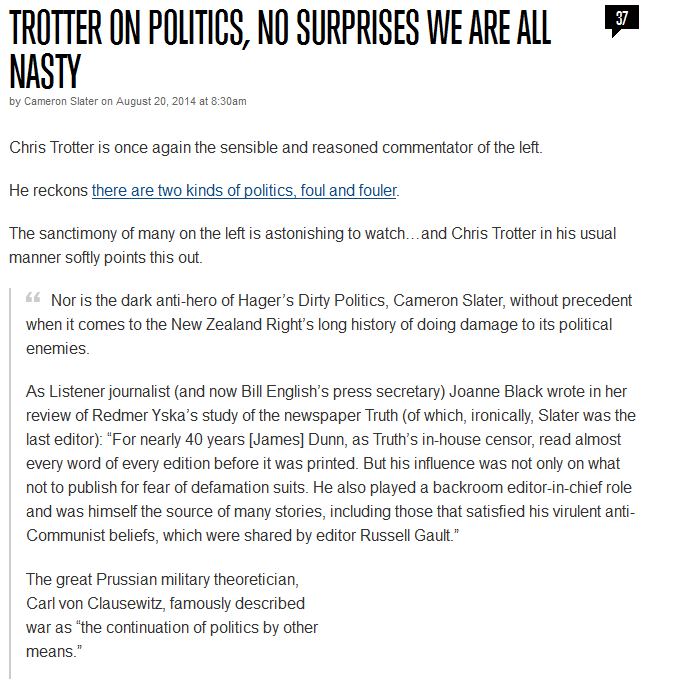











 Russell’s two cents is fascinating not only because it proves that Dirty Politics is continuing unabated, but also because it reveals Farrar’s “shopping” of cabal-serving narratives to other mainstream journalists. Despite the claims in
Russell’s two cents is fascinating not only because it proves that Dirty Politics is continuing unabated, but also because it reveals Farrar’s “shopping” of cabal-serving narratives to other mainstream journalists. Despite the claims in 